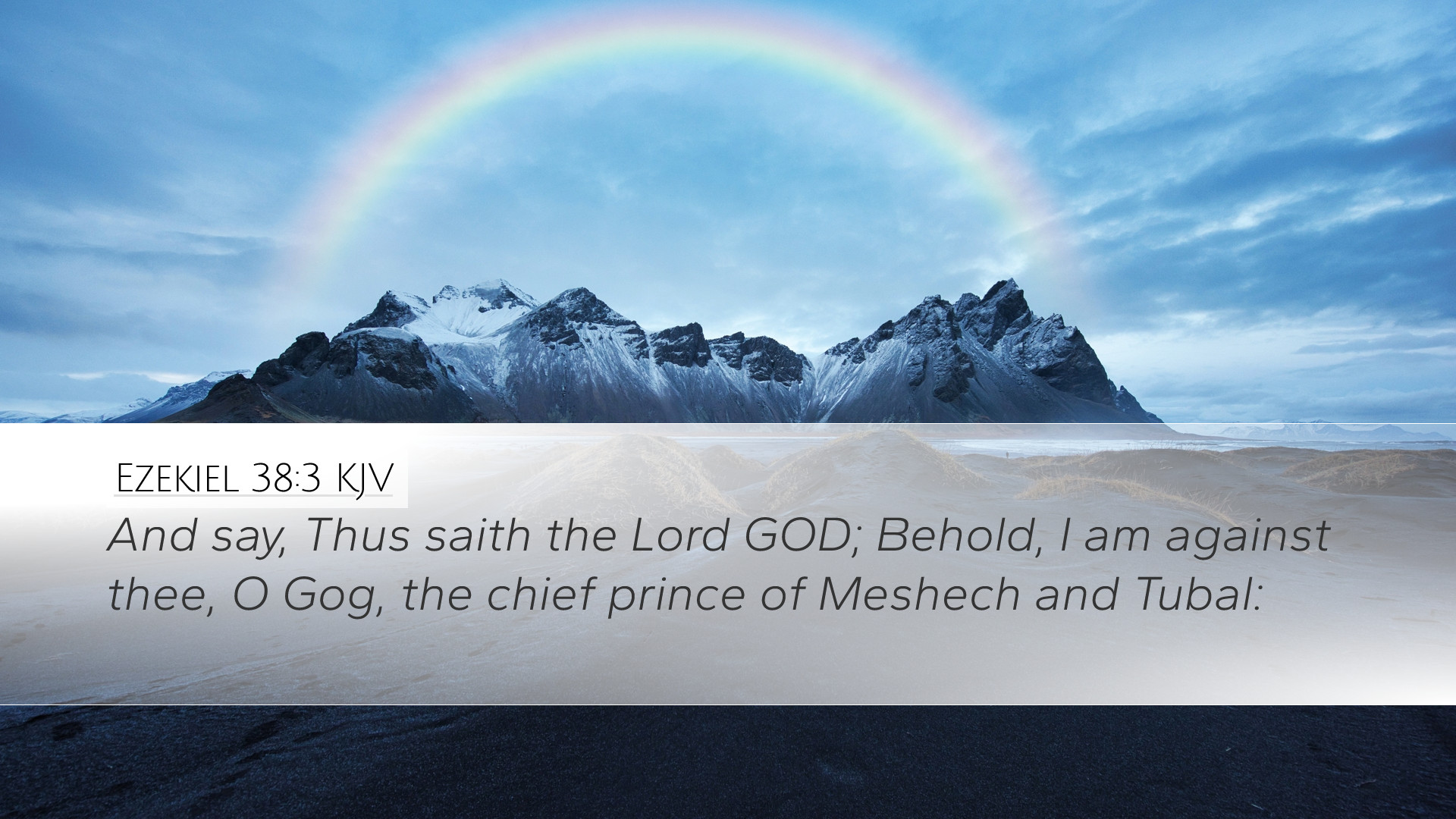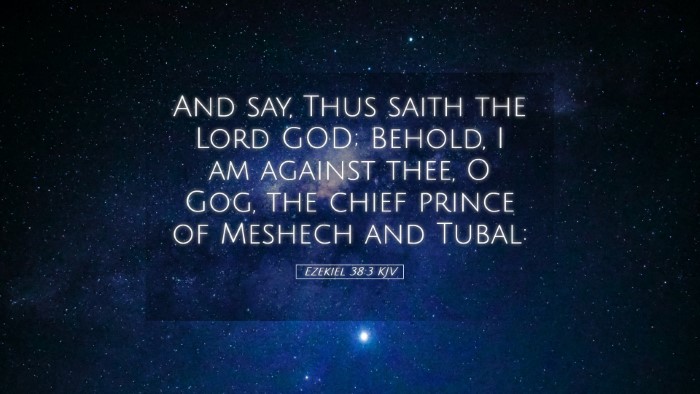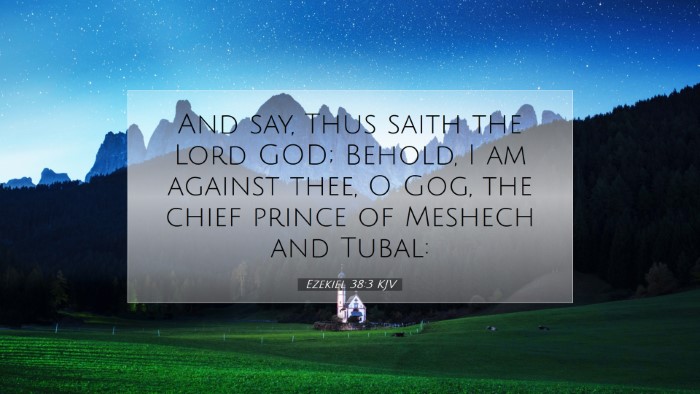Ezekiel 38:3 - A Comprehensive Commentary
Verse Text: "And say, Thus saith the Lord God; Behold, I am against thee, O Gog, the chief prince of Meshech and Tubal."
Contextual Overview
The prophetic literature of Ezekiel presents a vivid portrayal of God's sovereignty over the nations, particularly in times of conflict and calamity. This chapter, often regarded as one of the key eschatological prophecies, introduces Gog — a figure representing opposition to God’s people, notably the Israelites.
Examination of Key Terms
- Gog: Identified by commentators as a symbolic representation of the forces opposed to the divine will, Gog is a principal antagonist in the eschatological scenario laid out in this chapter.
- Meshech and Tubal: These sonorous names evoke historical nations with a legacy of hostility towards Israel. They symbolize not just geographical locations but broader spiritual and political opposition.
Theological Implications
In this verse, God’s proclamation against Gog serves as a reminder of the divine oversight in human affairs. The phrase "I am against thee" reflects God’s active opposition to those who seek to undermine His chosen people.
Divine Sovereignty
The assertion that God stands against Gog encapsulates the larger biblical theme of sovereignty. As noted by Matthew Henry, this illustrates God’s ultimate authority over earthly kings and kingdoms.
Judgment and Redemption
The prophetic message often intertwines judgment with hope. While Gog represents a formidable opponent, this opposition is ultimately futile against the plans of the Almighty. Albert Barnes emphasizes that public confession of sin and reliance on God’s strength can lead to redemption from such adversaries.
Historical Context
Understanding the historical context of Meshech and Tubal aids in grasping the significance of this passage. These nations, part of the greater landscape surrounding Israel, engaged in various conflicts throughout biblical history. Adam Clarke notes that the mention of these entities serves to warn Israel that their enemies, although mighty, are not beyond God’s authority.
Symbolism of Gog
The character of Gog transcends mere historical labeling, emerging as an archetype of opposition faced by God’s people. The use of Gog in eschatological literature often symbolizes the final conflict between the forces of good and evil.
New Testament Parallels
New Testament scholars observe parallels in the figure of Gog with the ultimate adversary, Satan, especially in the eschatological books such as Revelation. Matthew Henry reiterates that God’s declarations regarding Gog assure believers that divine judgment is inevitable for those who defy God’s ordained purposes.
Practical Applications
This verse is not merely historical or prophetic; it extends its relevance into the spiritual lives of contemporary believers. The assurance of God’s opposition to the forces opposing His people provides a foundation for faith in the face of adversity.
Faith in Adversity
In pastoral care and ministry, the reminder that God stands against our adversaries fosters an empowering environment for believers to face their personal and communal challenges. Albert Barnes encourages readers to defend their faith, knowing God fights on their behalf.
Community Alertness
The portrayal of Gog calls for vigilance among the faithful. As Adam Clarke asserts, it is imperative for believers to be aware of the modern-day “Gogs” — ideologies and movements that contradict biblical principles — while also resting in God’s ultimate control.
Concluding Reflections
Ezekiel 38:3 serves as a powerful reminder of God’s unwavering stance against evil. Pastors, theologians, and scholars are called to draw from this verse not only for its historical significance but for its rich implications in theology, faith, and ministry today.
The apostolic encouragement: We remain steadfast in faith, relying on the assurance that God is our defender, and that His purposes, ultimately, shall prevail against all opposition.


